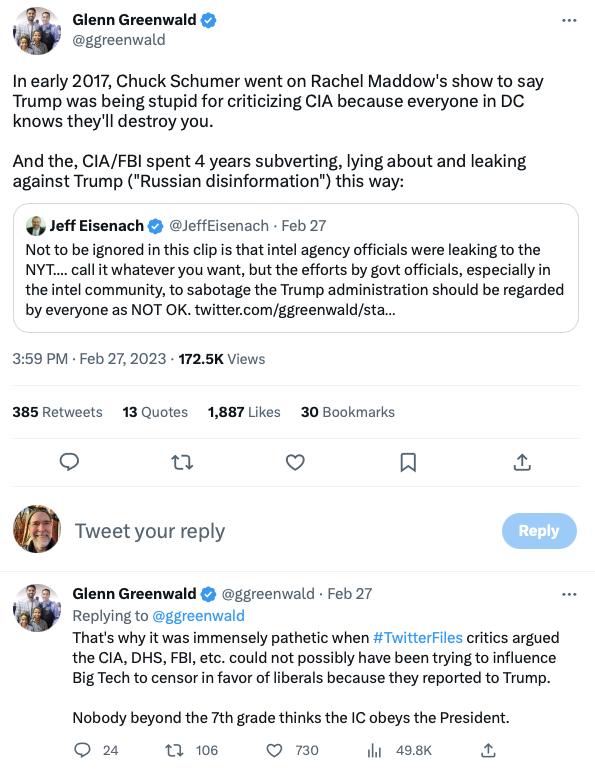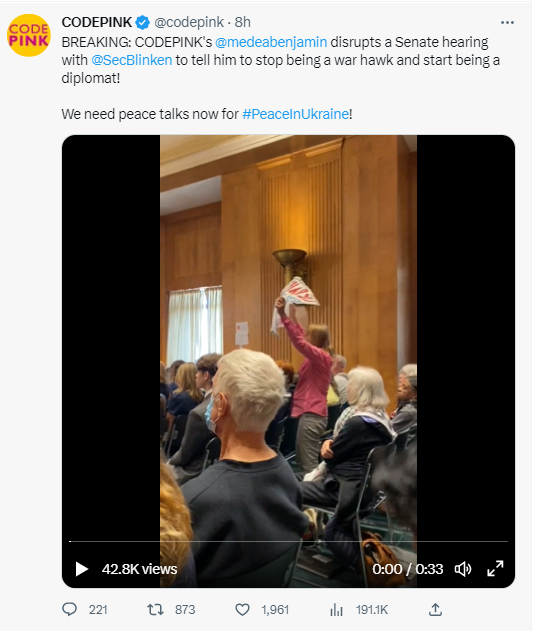About the Power of the CIA
How powerful is the CIA? Consider this "Six ways till Sunday . . ." comment Chuck Schumer to Rachel Maddox in 2017:
Maddow: "Let me ask you, I don't know if you've seen this. I don't want to blindside you with this. This is the latest tweet--as you were just saying--the President elect's latest unsolicited pronouncement on the intelligence community. This was his tweet just a little while ago tonight, and as you see the scare quotes there."
The intelligence briefing on so called Russian hacking was delayed until Friday, perhaps more time needed to build a case. Very strange.
Maddow: "We're actually told intelligence sources tell NBC News since this tweet has been posted, that actually this intelligence briefing for the president elect was always planned for Friday. It hasn't been delayed. But he's taking these shots, this antagonisms, taunting to the intelligence."
Chuck Schumer: "Let me tell you, you take on the intelligence community, they have six ways from Sunday of getting back at you. So even for a practical, supposedly hard nosed businessman, he's being really dumb to do this."
Maddow: "What do you think the intelligence community would do if they were mad?"
Schumer: "I don't know, but I from what I am told, they are very upset with how he has treated them and talked about them. And we need the intelligence community. We don't know what's gonna--look at the Russian hacking! Without the intelligence community, we wouldn't have discovered it."
Maddow: "Do you think he has an agenda to try to dismantle parts of the intelligence community. I mean, this form of when we talk to hostility . . ."
Schumer: "Let me tell you, whether you're a super liberal democrat or a very conservative Republican, you should be against dismantling the intelligence community."
In the meantime, Seymour Hersh has just released another jaw-dropping story, this one about John F. Kennedy and Robert Kennedy, the CIA and the Mafia. Title: "THE KENNEDYS' SECRET SICILIAN OPERATION: What the CIA didn't tell the Warren Commission."
And I'm slowly working my way through The Devil's Chessboard, by David Talbot. Dozens of sordid tales about the CIA.



